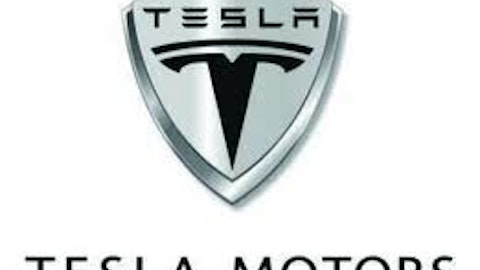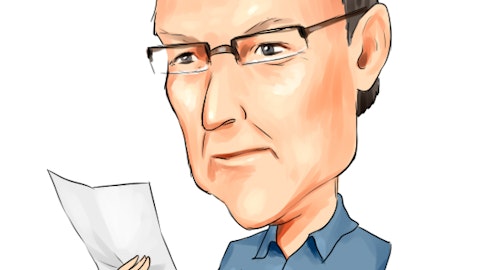When fellow Fool Brian Stoffel made a pitch last month to buy Google Inc (NASDAQ:GOOG) stock and hold it for life, at least one Big G employee believes that could mean “forever.”
If you think Google’s self-driving cars and augmented reality glasses are cool, how does immortality sound?
The Edison of our time
Last December, Google Inc (NASDAQ:GOOG) hired one Ray Kurzweil to lead a variety of unique projects revolving around machine learning and language processing techniques. Kurzweil stated that Google’s unique resources are allowing him to pursue his lifelong ambition of perfecting true artificial intelligence.
Of course, this kind of research has obvious applications in Google Inc (NASDAQ:GOOG)’s wheelhouse, perhaps most notably by improving its core search competencies and peripheral products like its “Google Now” service, which Google made to more effectively compete with Apple Inc. (NASDAQ:AAPL)‘s Siri voice assistant.

Ray Kurzweil. Image Source: Wikimedia Commons.
But what does that have to do with living forever?
Last week, Kurzweil appeared as a guest speaker at the second annual Global Future 2045 congress, a meeting of minds founded by Russian entrepreneur Dmitry Itskov, “focused on the discussion of a new evolutionary strategy for humanity aimed at overcoming the 21st century’s civilization challenges.”
In addition, the congress’ website states, “The main science mega-project of the 2045 Initiative aims to create technologies enabling the transfer of a individual’s personality to a more advanced non-biological carrier, and extending life, including to the point of immortality.”
If you think that sounds a lot like James Cameron’s blockbuster movie Avatar… well, you’d be correct.
In fact, Itskov’s website at 2045.com doesn’t shy away from the term, even providing the following “Avatar Project Milestones” for the initiative:

Source: 2045.com
However, while Kurzweil’s work in artificial intelligence and mapping the human consciousness have obvious applications for such an initiative, Kurzweil also believes medical advances may be able to progress fast enough to offset such a need. He said at the conference:
The life expectancy was 20 1,000 years ago. … We doubled it in 200 years. This will go into high gear within 10 and 20 years from now, probably less than 15 we will be reaching that tipping point where we add more time than has gone by because of scientific progress. Somewhere between 10 and 20 years, there is going to be tremendous transformation of health and medicine.
Of course, that’s nothing particularly new; Kurzweil said something to that effect to The New York Times in January, then reiterated his stance to The Wall Street Journal again in April.
This time, however, Kurzweil went on to point out people have already made significant progress toward treating diseases and other ailments by approaching biology as an operating system, saying, “There’s already fantastic therapies to overcome heart disease, cancer, and every other neurological disease based on this idea of reprogramming the software.”
Of course, Kurzweil has never exactly made a habit of thinking small.
In fact, when 65-year-old MIT grad announced he was joining Google Inc (NASDAQ:GOOG) in December, he pointed out he was ironically criticized in 1999 when he predicted it would only take a decade before we would see technologies like self-driving cars and mobile phones that could answer our questions.






